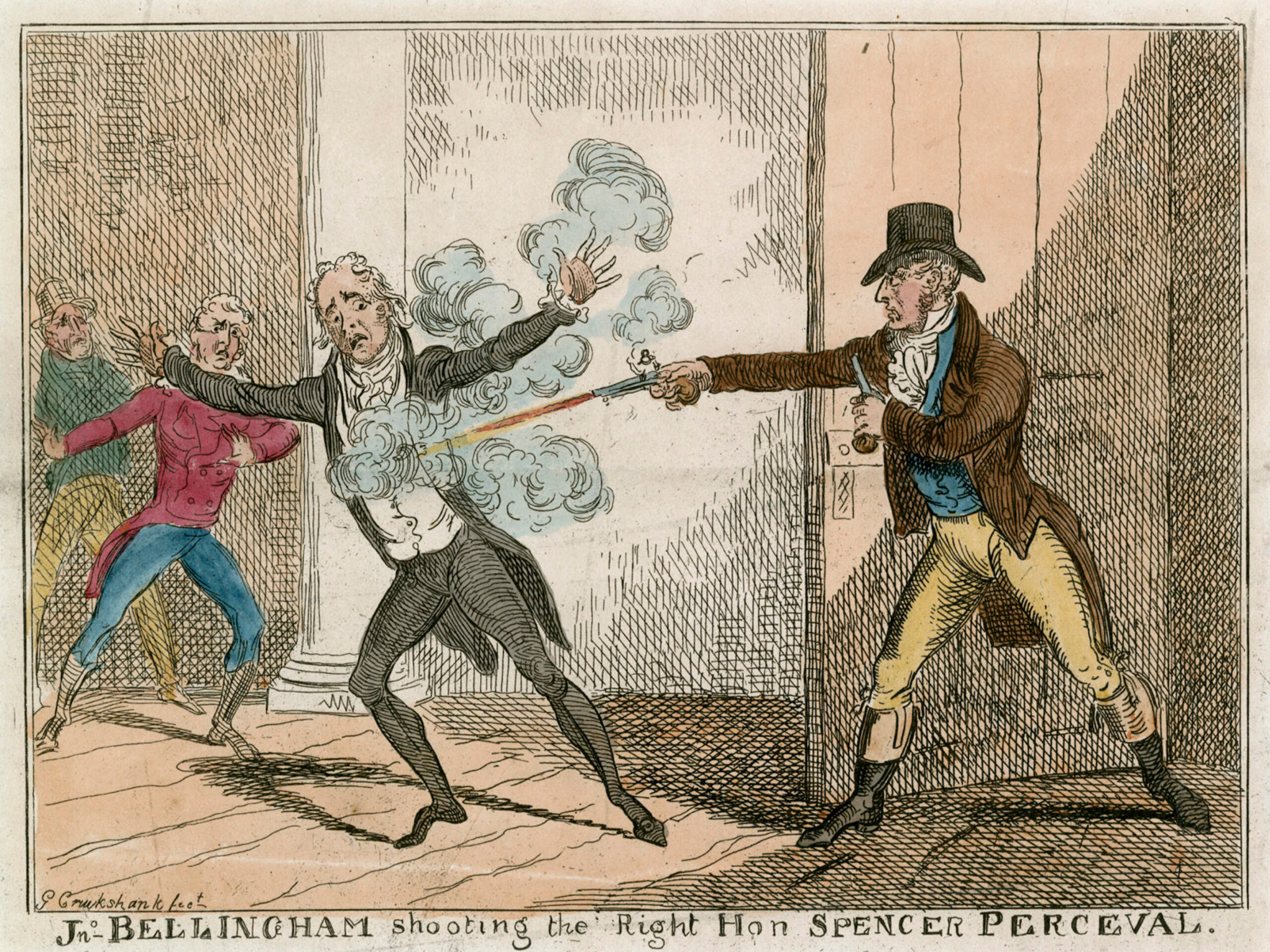Assassination!
On the of 11th May 1812 the British Prime Minister was shot dead by a man who had close links to St Neots. On Saturday 16th November the St Neots Players and the Friends of St Neots Museum present the world premiere of a play about the 1812 assassination of Spencer Perceval, by John Bellingham, who grew up in St Neots. The play has been written by Glenys Shaw of the St Neots Players and uncovers the story of this shocking event. The play will be followed by a short talk by local historian, Liz Davies looking at the national crisis which led to the murder. On the afternoon of Monday 11th May 1812 John Bellingham, of St Neots, entered the lobby of the Houses of Parliament and waited nervously for the Prime Minister, Spencer Perceval, to arrive. The lobby was busy with men waiting to attend an investigation into the governments Orders in Council. These Orders had contributed to a Europe wide economic recession with British trade shrinking and thousands of people thrown out of work. The lobby hummed with Liverpool shippers, Manchester cotton spinners, East India merchants, Yorkshire woollen weavers and Staffordshire pottery makers all waiting to attend the hearing.

The Prime Minister was late and as he hurried up the steps and into the lobby John Bellingham stepped out from the shadows, pulled a small flintlock pistol from inside his coat and shot Spencer Perceval at almost point blank range. Perceval only had time to exclaim ‘Murder, oh murder’ before he collapsed on the floor, lifeless. Inside the Houses of Parliament there was intense shock at the brutal murder, but the assassin made no attempt to escape and was quickly detained. However, outside as the news of the assassination began to spread crowds started to gather and to celebrate the death of the man they believed had caused the terrible unemployment and loss of trade across the country. Many of those in the crowds believed the death of Mr Perceval was a cause for unrestrained rejoicing; John Bellingham had become the people’s hero! While the crowds celebrated in towns and cities across England, the middle and upper classes deplored the murder and worried that Perceval’s murder might lead to a British revolution. The Times newspaper asked ‘What could have excited the wretched assassin to the commission of so diabolical an act? By the next day it had been discovered that John Bellingham’s father had been a miniature portrait painter who had been locked up in an asylum for the violently insane before he died in 1781. But Bellingham’s calm attitude after his arrest and the discovery of his careful planning of the crime revealed no sign of insanity, leaving the authorities and the public alike baffled by the crime. All will be revealed by the play and the short talk on the 16th November, tickets £15, available in person from the Museum or from the museum website www.stneotsm.useum.org.uk/whats-on/
Liz Davies, Local historian



